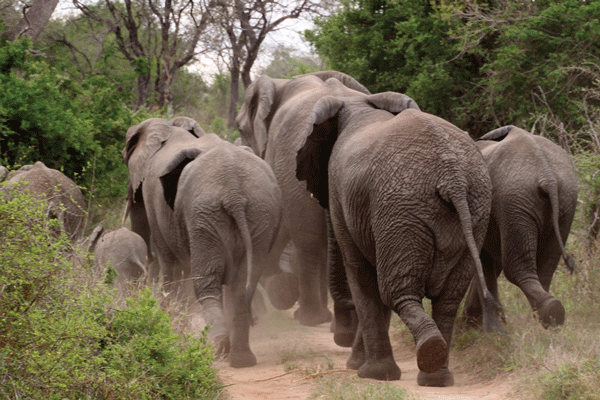By Nokuthaba Dlamini
Thirteen elephants recently found dead in Hwange and Victoria Falls districts did not die from Anthrax or alleged poisoning, the Victoria Falls Wildlife Trust (VFWT) has said.
The thirteen elephants, eleven in Panda Masuie Forest and two in Woodlands Estate were confirmed dead by the Zimbabwe Parks and Wildlife Management Authority (ZimParks) on Saturday amid speculation that they had contracted Anthrax disease, a theory that was quickly ruled out by the VFWT veterinary laboratory and field scientists who carried out the post-mortem.
“We confirm that laboratory testing has not shown any evidence that Anthrax is the cause, which was the initial suspicion based on gross post mortem examinations, done in the field,” VFWT announced on Sunday.
“The cause of death is still unknown. No other wildlife has yet been affected and ivory was intact.”
VFWT has been leading operations to gather extensive and viable samples in collaboration with Wild is Life Trust, Zimbabwe Elephants Nursery (ZEN), Forestry Commission of Zimbabwe and Zimparks.
“Decontamination of the areas are being carried out to try contain any suspected disease,” they said.
“All protocols are being strictly adhered to. Laboratory testing is continuing, as well as surveys to identify any further carcasses.”
Wild is Life Trust and ZEN also assured its supporters and partners that every effort was being made to get to the bottom of the tragedy.
In addition, authorities said all of the elephants undergoing re-wilding are healthy and safe, temporarily under quarantine from wild elephants, until further clarity on the incident is achieved.
“Further details will be shared with the public when more conclusive findings and evidence is available. The teams are committed to full transparency in this regard.”
In the past, many elephants have been killed by poachers using cyanide poisoning mainly in Hwange National Park.

